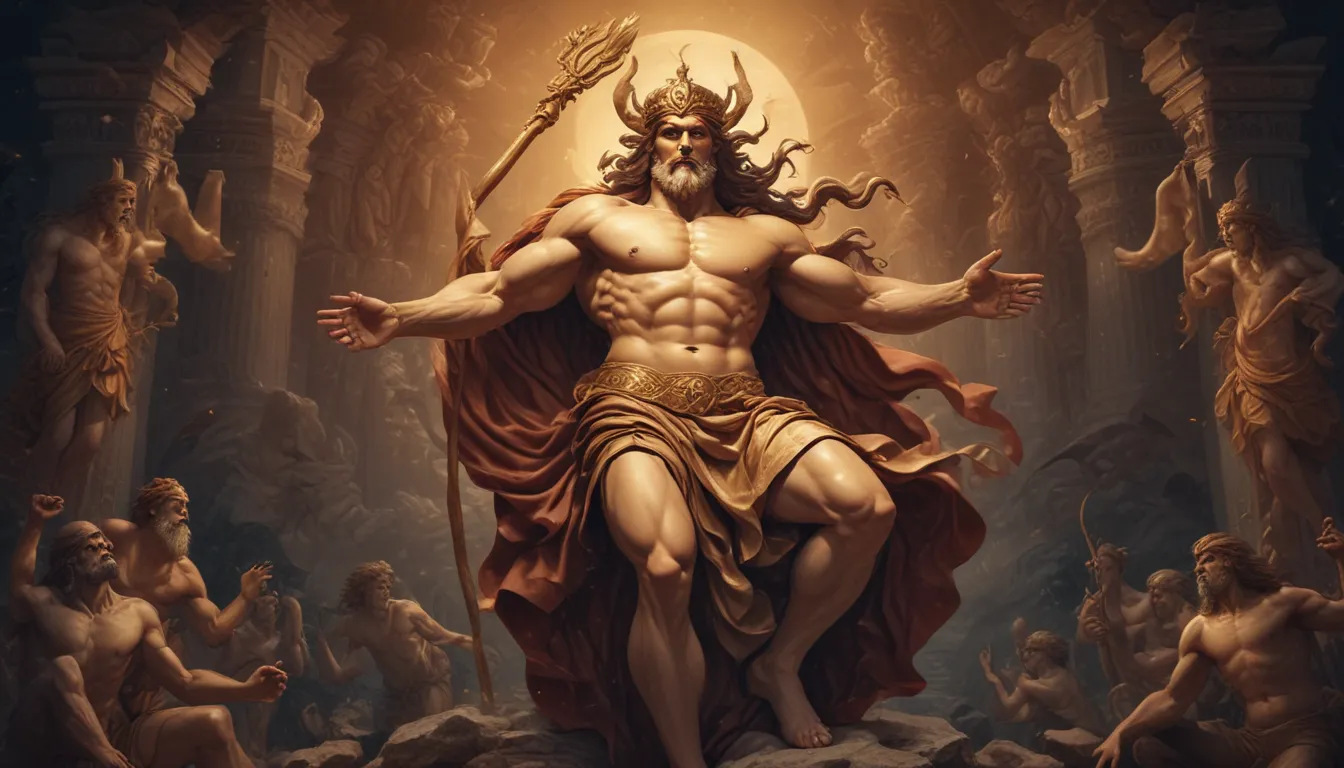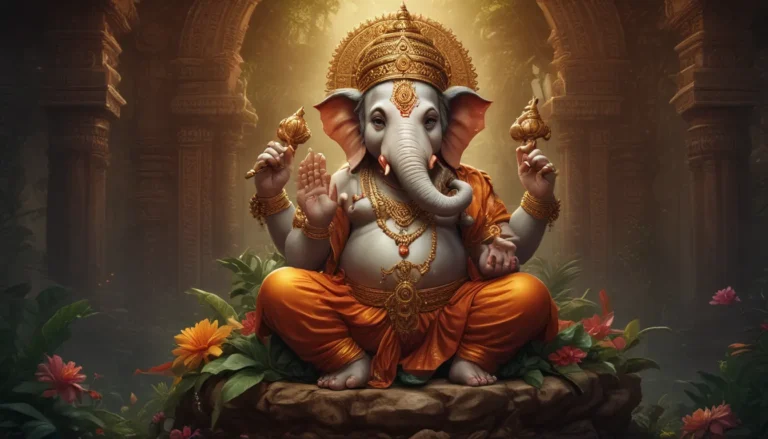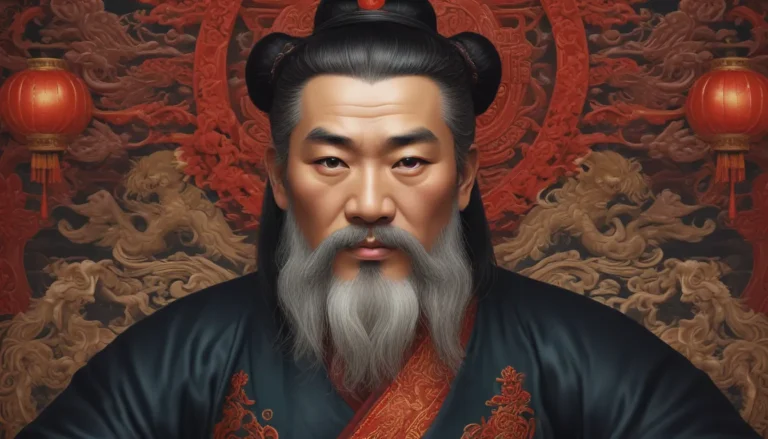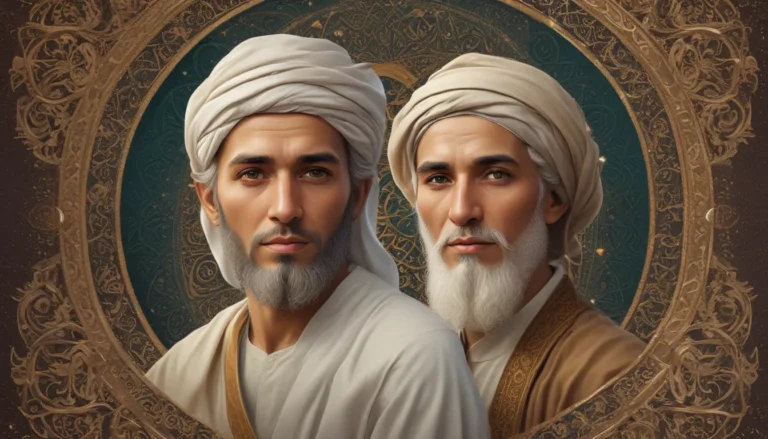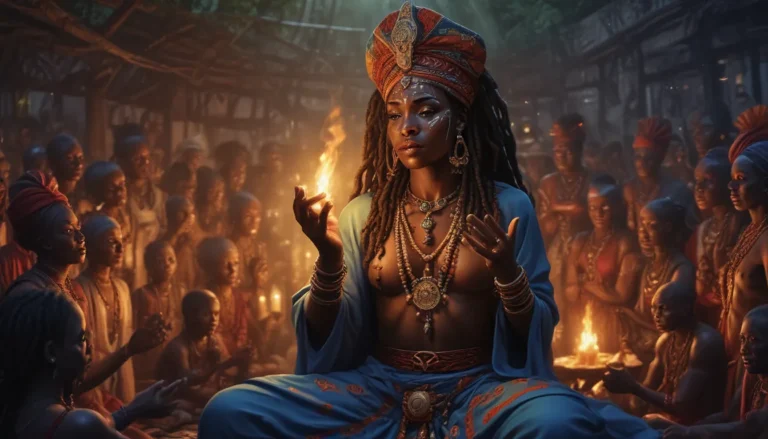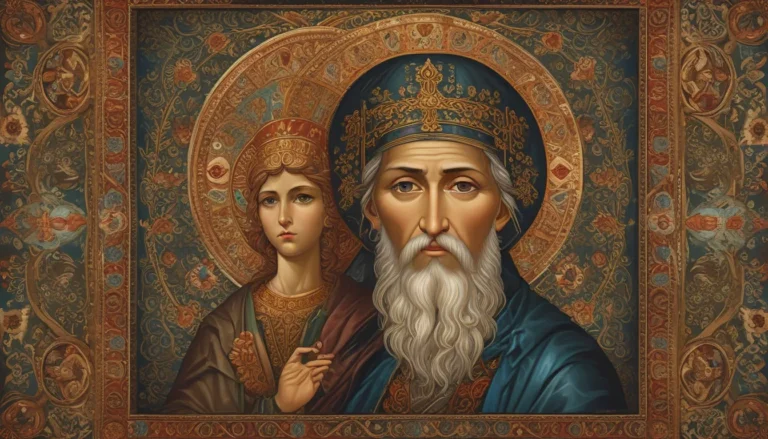The images in our articles may not match the content exactly. They are used to grab your attention, not to show the exact details in the text. The images complement the text but do not replace it.
The ancient Greek civilization is steeped in rich mythology, with a pantheon of powerful and enigmatic gods and goddesses that have captivated people for centuries. These divine beings played significant roles in shaping the beliefs, values, and cultural practices of the ancient Greeks, leaving behind a legacy that continues to inspire awe and wonder.
Join us on a journey through the realms of Mount Olympus and the depths of the underworld as we uncover 19 amazing facts about the Greek gods, shedding light on their complex personalities, extraordinary abilities, and enduring influence on art, literature, and popular culture.
Discovering the Pantheon of Greek Gods
The Greek pantheon is a vast and diverse collection of deities, each with their own unique attributes and stories that have fascinated generations of people. From the mighty Zeus, ruler of the gods, to the enchanting Aphrodite, goddess of love and beauty, these gods and goddesses embody a rich tapestry of virtues, vices, and timeless significance in the world of Greek mythology.
Key Takeaways:
- Explore the captivating world of Greek mythology with 19 amazing facts about the powerful gods and goddesses who shaped ancient lore and continue to inspire awe through their timeless stories.
- From Zeus, the mighty ruler of Mount Olympus, to Aphrodite, the enchanting goddess of love and beauty, each deity embodies a rich tapestry of virtues, vices, and timeless significance in the pantheon of Greek mythology.
The Mighty Zeus: King of the Gods
Zeus, the formidable ruler of Mount Olympus, held the esteemed title of the king of the gods in Greek mythology. Known as the god of the sky and thunder, Zeus wielded a powerful thunderbolt as his weapon of choice, symbolizing his authority over both gods and mortals. His decisions and actions shaped the course of ancient Greek lore, making him a central figure in the pantheon.
Hera: Goddess of Marriage and Family
Hera, the queen of the gods and wife of Zeus, presided over marriage, women, and childbirth in Greek mythology. Her unwavering commitment to matrimony and family made her a symbol of devotion and union. However, her vengeful nature towards Zeus’s extramarital affairs often led to tumultuous events in Greek myths, showcasing the complexities of her character.
Poseidon: Lord of the Sea and Earthquakes
Poseidon, the tempestuous god of the sea and earthquakes, commanded the ocean with his mighty trident. His turbulent nature mirrored the unpredictable and formidable aspects of the sea, and his influence extended to sailors, earthquakes, and horses, highlighting his power over the natural world in Greek mythology.
Demeter: Guardian of the Harvest
Demeter, the nurturing goddess of the harvest, played a vital role in cultivating the earth’s bounties in ancient Greek society. Her association with agriculture and fertility underscored her significance, as the harvest held immense cultural and sustenance value for the Greeks, making her a revered figure among the people.
Athena: Goddess of Wisdom and Warfare
Athena, the formidable goddess of wisdom and strategic warfare, embodied intellect and tactical prowess in Greek mythology. Her strategic counsel and valor in battle made her a revered figure among gods and mortals alike, symbolizing the virtues of wisdom and courage in the ancient world.
Apollo: Patron of Music, Healing, and Prophecy
Apollo, the multifaceted god of music, healing, and prophecy, epitomized artistic expression and divine insight in Greek mythology. His dual nature as a healer and harbinger of prophecy underscored his influence in the realms of medicine, music, and foresight, shaping cultural practices and beliefs among the Greeks.
Artemis: Protector of the Hunt and Wilderness
Artemis, the independent goddess of the hunt and wilderness, symbolized the untamed beauty of nature and the prowess of the huntress in Greek mythology. Her fierce protectiveness of wildlife and her role as a guardian of young women solidified her status as a revered deity, showcasing her connection to the natural world.
Ares: God of War and Conflict
Ares, the formidable god of war, embodied the brutal and chaotic nature of conflict in Greek mythology. His martial prowess and unyielding ferocity in battle made him a formidable force on the battlefield, commanding the respect and fear of warriors, showcasing the harsh realities of war.
Aphrodite: Goddess of Love and Beauty
Aphrodite, the enchanting goddess of love and beauty, captivated the hearts of gods and mortals alike with her irresistible allure in Greek mythology. Her influence extended to matters of love, desire, and beauty, shaping the romantic tapestries of Greek mythology and highlighting the complex nature of human emotions.
Hephaestus: Master of Fire and Forge
Hephaestus, the skilled god of fire and forge, exemplified craftsmanship and ingenuity in Greek mythology. His mastery of metallurgy and artisanal skill made him a revered figure in the realms of creation and industry, showcasing the importance of craftsmanship and innovation in ancient Greek society.
Hermes: Messenger of the Gods
Hermes, the swift and cunning messenger of the gods, traversed the boundaries between the mortal world and Mount Olympus with unparalleled agility in Greek mythology. His role as a herald and guide underscored his significance in facilitating communication and travel, showcasing the importance of communication and connection in the ancient world.
Dionysus: God of Wine and Festivity
Dionysus, the exuberant god of wine and festivity, embodied the joyous and liberating spirit of revelry in Greek mythology. His influence extended to the realms of wine-making, theater, and ecstatic celebration, shaping the cultural landscape of ancient Greece and highlighting the importance of celebration and joy in human experience.
Hades: Guardian of the Underworld
Hades, the enigmatic god of the underworld, ruled over the realm of the dead with a solemn and unyielding presence in Greek mythology. His domain encompassed the afterlife and the spirits of the departed, casting him as a figure of both dread and reverence, showcasing the mysteries of death and the afterlife in ancient beliefs.
Persephone: Queen of the Underworld
Persephone, the graceful queen of the underworld, held a pivotal role in the cycle of life and death in Greek mythology. Her association with the changing seasons and the cycle of rebirth underscored her significance as a symbol of transformation and renewal, showcasing the cyclical nature of life and the eternal cycle of existence.
Hestia: Guardian of Hearth and Home
Hestia, the serene goddess of the hearth and home, embodied the warmth and stability of domestic life in Greek mythology. Her presence in the household and her role in communal gatherings made her a cherished figure in the hearts of ancient Greeks, showcasing the importance of home and family in society.
Eros: God of Love and Passion
Eros, the mischievous god of love and passion, wove the threads of desire and affection among gods and mortals in Greek mythology. His influence extended to matters of romantic entanglement and emotional connection, shaping the tapestries of love and desire in the myths, highlighting the complexities of human relationships.
Pan: Guardian of Nature and the Wild
Pan, the rustic god of nature and the wild, epitomized the untamed and primal aspects of the natural world in Greek mythology. His presence in the wilderness and his association with shepherds and rustic music underscored his significance in rural life, showcasing the connection between humans and the natural world.
Nike: Goddess of Victory
Nike, the triumphant goddess of victory, symbolized the exultant spirit of triumph and achievement in Greek mythology. Her presence in the realm of athletic contests and competitive endeavors solidified her status as a revered figure of success and glory, showcasing the importance of perseverance and triumph in human endeavors.
Helios: God of the Sun
Helios, the radiant god of the sun, illuminated the world with his celestial chariot, bringing light and warmth to the earth in Greek mythology. His daily journey across the sky underscored his role as a symbol of vitality and illumination, showcasing the power of the sun in sustaining life and growth.
The world of Greek mythology is a rich tapestry of gods and goddesses, each with their own unique attributes and stories that continue to captivate and inspire people around the world. From the majestic rule of Zeus to the enigmatic realm of Hades, the Greek deities embody a diverse range of virtues, vices, and timeless significance in the pantheon of Greek mythology, showcasing the complexities of human emotions, relationships, and experiences.
In conclusion, the Greek gods stand as enduring symbols of storytelling and imagination, weaving together tales of heroism, love, conflict, and transformation that resonate with audiences through the ages. Their legacy serves as a testament to the enduring power of myth and the timeless appeal of divine intrigue, inviting us to explore the mysteries and wonders of the ancient world through the lens of mythology and folklore.
